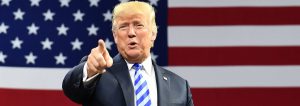Major Taiwanese newspaper China Times recently reported that, as the China-U.S. trade war intensifies, Chinese capital that used to flow continuously into U.S. high-tech companies, in 2018 started to see a dramatic decline. According to Forbes, last year China invested a total of around US$2 billion in the U.S. high-tech field. That was an 80 percent drop from 2017. More and more U.S. start-up companies are avoiding Chinese investments since many U.S. investors are concerned about the additional risks that these Chinese partners may bring to the venture. The Canadian detention of Huawei CFO Meng Wanzhou could further cool down the willingness of Chinese investors. According to several experts monitoring the trade war, in the long run, the conflicts in trade will not have a major impact on business activities between China and the Silicon Valley. However, all experts agreed that the era of close cooperation between China and the United States is over.
Source: China Times, February 2, 2019
https://www.chinatimes.com/cn/realtimenews/20190202001605-260409

